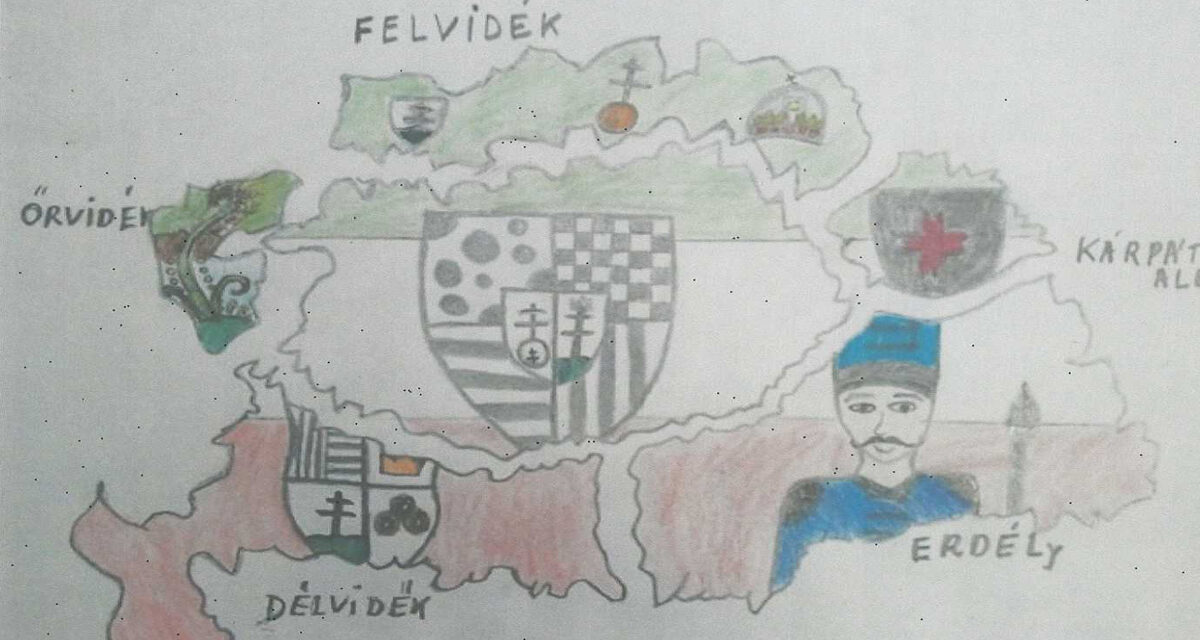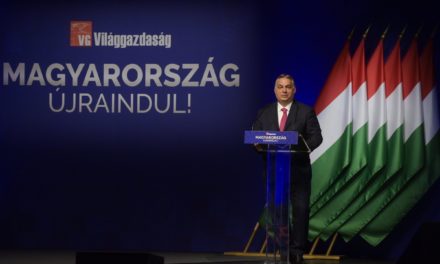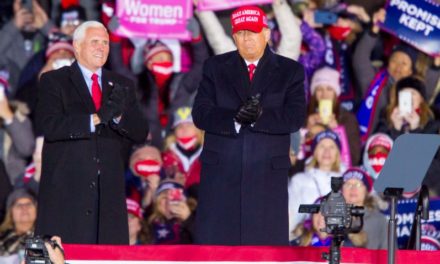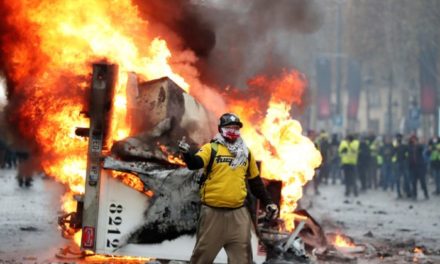How could they force a dictate on us that was not even preceded by a trial, where we could defend ourselves against the accusations while sitting in the dock?
For many, it is already a matter of fact that the cause of Trianon was not only World War I. This is also the opinion of Széchenyi Prize-winning Hungarian ethnographer Bertalan Andrásfalvy - the former Minister of Culture of the Antall government - which he expressed in "Vasárnap". in an analytical article published in the newspaper on March 30, 2020 .
I do not wish to criticize this view at length, but I do not agree with the fact that the Hungarian nobility and aristocracy were the fundamental and main root cause of the Trianon tragedy, and that they oppressed and treated the indigenous people of the Carpathian Basin as aliens.
I was particularly surprised by his position that this particular "oppression" has been going on since the foundation of the country in 896, while he does not take into account - and did not even hint at - the fact that all of this must have been valid for all the feudal societies of medieval Europe at the time. This sentence really struck a chord:
"István Werbőczy, in his Tripartite published in 1514, states that the descendants of the conquerors are only the Hungarian nobles. So he excluded the entire Hungarian peasantry, the people, from among the members of the nation!"
This is simply a slip on the part of Professor Bertalan Andrásfalvy, which - already here - turns into a terrible and unjust self-accusation. Then the famous author who became a member of the Hungarian Academy of Sciences continues in this way, with his sentence indirectly - at least for me - immediately proving that self-accusations similar to the previous one, both in the past and in the present, how and how quickly they can become accusations against us, the from our enemies:
"This idea also appeared at Trianon, in the case of the Beneš decrees: that is, that there is no Hungarian people, there are only Hungarian masters and oppressed serfs of other languages."
And with this "Beneš" idea - in a rather strange way for me - he tries to justify his own, previously expressed view, as if it could become an unquestionable fact.
In my opinion, Professor Bertalan Andrásfalvy's position is nothing more than a socio-political generalization, so to state it as a specific cause of the "Trianon tragedy" seems to be an exaggeration, to say the least. If only for that reason, I see echoes of the socialist demagogy of the 1950s in his above thoughts, which even then caused irreparable, serious damage to the nation.
More noteworthy, however, is József Gazda's article , which Dr. Irén Rab, "Ungarn Aus Erster Hand" c. was published in the issue of its online newspaper dated 04.06.2023. The writing of this writer, teacher and sociographer born in Kézdivásárhely won me so much that in this article I will only summarize it - more precisely, one of its details - supplemented with my own opinion.
So let's ask the question, why did "Trianon" happen?
Let's see if we can find an answer to this, and if not, at least try to summarize the reasons.
Because historical research has not yet found an answer to this question, or even if it did, it was not made public, neither by Hungarian nor universal historical research.
And if we were able to read answers from time to time, such as may have been included in school textbooks, they were mostly inaccurate and moved within the framework dictated by the given political course.
The latter was mostly typical of the approach to history writing after the Second World War. But the answer is hidden somewhere near us, we just have to find it.
So let's start by listing the facts:
On June 28, 1914, the fateful day that started the first great conflagration, it was not Hungary that declared war on Serbia, but the Austro-Hungarian Monarchy. After the expulsion of the Turks, Hungary unfortunately played a subordinate role in the Habsburg Empire for 200 years, and it did not regain full legal equality even with the settlement of 1867, even though it was preceded by the freedom struggle with enormous blood sacrifices. It follows that it did not have an independent ministry of military affairs and foreign affairs either.
It is also well known that at the fateful crown council, where the decision was made regarding the declaration of war, only the Prime Minister of Hungary voted against it
- writes József Gazda.
So, in the declaration of war, Hungary played a restraining role, or at least tried to play. Knowing all this, the question arises, why was Hungary declared the cause of the war, responsible for the 20 million victims, and why was its territory also given to its loser?
It is also a fact that Ferenc Ferdinand was not murdered by the Hungarians either, although the historiography believes that a whole machine worked to organize the murder. Since Ferenc Ferdinand was pro-Slavic and wanted to replace dualism with trialism, i.e. that Austro-Hungarian-Slavic peoples form the core of the monarchy together, the declaration of war seems rather forced. Of course, it cannot be ruled out that the murder of the heir to the throne was also connected with the intention of starting the war. However, this was by no means the will and intention of Hungary, and thus this accusation of Trianon is also false.
According to the other important accusation, the Hungarians oppressed their national minorities, that is, we were punished by Trianon as a "sinful, oppressive nation".
However, the real situation is much more complex. The annexation of Northern Hungary was not wanted by Slovakia, which was born, formed and developed into a nation in the Hungarian state, but by the leading politicians of the Czech Republic in order to enlarge their own country.
At the same time, in the south, the Croatian nation has been able to enjoy the status of an equal, fellow nation for more than 800 years. So it was not a subjugated people, but as a subject of the Holy Crown, like the Hungarians, its people were, so to speak, a nation of equal rank to the Hungarian Empire. It would be worth investigating their separation and the reason for it, but the fact that our Hungarian leaders oppressed them is clearly out of the question. And the population of Burgenland, although the majority were German, but their historical consciousness linked them to Hungary, all of which was proven by the result of the referendum that was only "allowed" in Sopron and its surroundings.
The main anti-Hungarian internal force was Romania
They are the XVIII. From the 19th century onwards, they gradually became the majority in the 102,000 square kilometer area that was later annexed to them. However, if we examine their situation, we can draw the conclusion that they once enjoyed much more rights in Hungary than any other European minority - with the same number or proportion - in their own country. It is enough if we only look at how the minorities living in the former Old Romania - including the Hungarians there - lived, in contrast to how the Transylvanian Romanians could live in Hungary, then the difference is almost like heaven and earth.
The ancient Romanian minorities, including the Hungarians - who in the XVI. In the 19th century, they still made up a significant share in Moldavia and Muntenia - they never received any nationality rights, so the Hungarians from Moldavia and Muntenia merged en masse with the Romanians there. They did not have an independent school, nor did they have priests who spoke in their native language, who fought unsuccessfully for worship in their native language. We can safely call this romanization!
On the other hand, Transylvanian Romanians received an independent school network, as a result of which in 1918 the 2.8 million Transylvanian Romanians had numerically more Romanian schools than the 7.5 million living in the Old Kingdom.
For centuries, their churches could operate freely with their own priests, so much so that anti-Hungarian movements were also organized under their control. Ergo, Romanian culture was born under Hungarian "oppression", their first manuscripts and printed matter were created here, and the Romanian Bible was translated and published here. As a consequence, the Romanian national consciousness was also formed here (we repeat: under Hungarian authority!).
But the differences are also huge in other respects. It is a non-negligible fact that the Hungarian government printed the value of the money on Hungarian coins in Romanian and Slavic languages as a sign of the esteem of its people, even in 1848-49 on the Kossuth banknotes, and after 1867 also on the Hungarian forint. Among the home guard regiments established in the monarchy were Romanian, Croatian, Slovak and German command (and language) formations, which was - and still is - unprecedented for any other minority in Europe.
In a word, the freedoms they received from the Hungarians made it possible for their movements to spread. In addition to their newspapers, institutions and banks, they also had their own poets and writers, namely with a much higher level of education and cultural life than among the Romanians of Regatta. Moreover, they had the right of representation in the Hungarian Parliament, which they lived with.
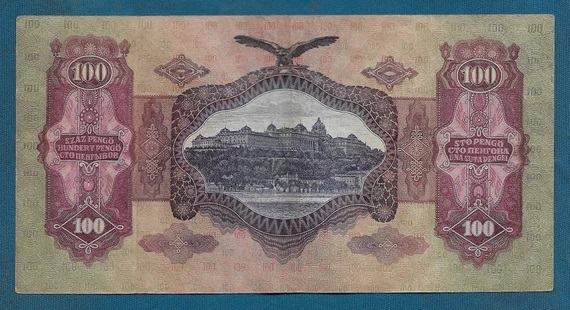
Source: numisnumismatics.com
For 800 years, the Saxons enjoyed autonomy in the Kingdom of Hungary, then in the Principality of Transylvania, and within Austria's "Province of Transylvania". In 1867, one of the first intentions of the Hungarian government established by the agreement was to grant autonomy to Romania as well. However, the Transylvanian Romanian politicians did not accept this.
The Torda Parliament of 1567 was the first in the world to guarantee "conscience", i.e. freedom of religion, which Orthodox Romanians and Serbians also enjoyed. From then on, every nation could praise God in their own language. Just for the sake of parallelism: Welsh, Irish and Scots were banned in England. National oppression is also one of Trianon's lies.
Demographic arrangement was also the basis of reference for the Trianon Dictate, and the falsity of this basis is proven by the Hungarian territories that came under foreign rule directly on the "far side" of the newly drawn borders.
Direct antecedent
And now we look at the immediate antecedent of "Trianon", that is, World War I itself and its consequences. First of all: the Hungarian army did not lose the war. I heard this countless times from my grandfather, who fortunately returned from the front.
It is true that by the time he got home, the land he had fought for was no longer Hungary, and he was not greeted by houses with red, white and green flags, but by a new gendarmerie in a foreign language and the Romanian national flag.
The units of the Hungarian army returned home from foreign battlefields in closed ranks, that is, our grandfathers and great-grandfathers, who stood on the battlefields for more than four years, could say with justifiable pride that "we always fought on foreign soil!". Until the end of the war, enemy forces - with the exception of two short periods - practically did not enter our country.
What were these periods? Immediately after the outbreak of the war, in 1914, better-equipped Russian troops invaded Transylvania for a few short months, and in 1916, without a declaration of war, Romanian troops invaded Hungary for a few weeks. Both attacking teams were knocked out of the country by the Hungarian teams in a short few weeks. But the Hungarians did not suffer defeat on the external fronts, beyond the borders, as allies of the central powers. Even if they were outnumbered; they stood the mud the whole time.
The sons of our nation were rightly proud of this, and our allies knew it too. Thus - he knew the Entente well - in order to break the Hungarians, the fighting spirit of the soldiers on the front had to be weakened. The disintegration of the country's internal unity, i.e. the so-called "Lily of the Wild Revolution", played a role in this. The memory of the soldiers fighting on the Italian front unanimously preserved the fact that agitators overwhelmed the Hungarian front sections that had not been able to defeat them until then, and the leafleting began:
"Hungarians, stop fighting, put down your weapons and go home. Your family is starving!"
Incendiary leaflets were even scattered over the units from airplanes. So the revolution with a bad memory did not explode, but rather was exploded.
Who did this and for what purpose? Or in the name of what force were those flyers printed? Or who covered the "lease" of those still quite rare and very expensive airplanes? Well, we are waiting for the answer from our historians! Because, without this revolution, the ultimate razing of Hungary to the ground, i.e., bringing it into an absolute losing position, would have been much more difficult, if not impossible.
The revolution led by Mihály Károlyi won in Pest on November 1, 1918. Archduke József - seeing no other way out - entrusted Mihály Károlyi with forming a government. A little later, the most capable man in the country, István Tisza, was murdered. Who, and on what behalf, this is - again, to this day - a secret, or to put it more delicately, unexplained.
As a first step, the new Minister of War immediately announced that he was a pacifist, and then, on his first day in office, he disbanded the army. And let's not forget: at that time there was no armistice agreement in Padua, the war was still going on. Yet this is how our new pro-peace Hungarian Minister of War acts. As a result, the Hungarian army, which had been in place for more than four years, disintegrated - that is, certain forces disintegrated, which immediately left the borders of historical Hungary unprotected.
As a result, Hungary's negotiating ability, which was still possible at that time, is seriously weakened almost overnight. Why was all this due to the political undermining of what foreign forces? Again, the next generation of Hungarian historians will provide the answer.
Some inexplicable oddities
The Central Powers signed a peace treaty with Romania in 1918. In this - for the sake of his peace - he renounced all his claims against the Monarchy. However, in the same year, on November 10, now on the side of the Entente, he declared war on the Central Powers. The essence of his declaration of war was to attack Hungary alone. With the knowledge of the Entente, of course. However, the central powers were no longer at war with the Entente, since the armistice had already been concluded a week earlier.
To make all of this even more complicated, Károlyi's ministers - Béla Linder and Jászi Oszkár - sign a separate armistice document in Belgrade on November 13, in which they include that the Maros is the demarcation line for the Romanians. In other words, in the name of the Entente, Romanian troops can penetrate Hungary as far as the Maros. Of course, this also meant the strange legal situation that the Romanians - in the name of the Entente - could enter the territory of a country with which the Entente is actually no longer at war.
All of this could have happened because Romania concluded a secret treaty with the Entente in 1916, but the negotiations had already started the year before that. On July 30, 1915, the Entente promised Romania that it would support Romania's territorial claim to Transylvania if the Kingdom of Romania attacked the Austro-Hungarian Monarchy from behind.
Romania began intensive armaments for this, but the final decision was not made until August 17, 1916, when the Romanian Prime Minister Bratianu and the representatives of the Entente signed the secret treaty according to which, in the event of Romania's entry into the war, the Entente would guarantee the Kingdom of Romania the entire territory of Transylvania. including up to the Tisza line. However, the only condition for this was that he could not make a separate peace with the central powers, including the Austro-Hungarian Monarchy.
Well, as we know, they also broke their promise to the Entente at that time, because they concluded their own separate peace with the central powers on May 7, 1918. And look, that's why the declaration of war against the Hungarians on November 10 was necessary, so that the state of war, which ended on May 7, would be reinstated and the conqueror would re-attack his right to seize the promised prey.
Trianon's demon tortures not only his victim, but also his loved ones
Thus, on November 16, 1918, the Romanian troops crossed the Hungarian border again and began their incursion into Hungary, which had been left without border guards in accordance with the decree of the newly appointed Budapest government: they brought their own gendarmerie to the occupied territories, and on the newly acquired "own land , in their own country", new clerks and judges were also appointed.
On December 21, 1918, Cluj was already occupied, illegally of course, because it was well beyond the Maros-szabta demarcation line - included in the Belgrade armistice. However, this was later officially given to them and thus the demarcation line was shifted step by step towards the west.
At the same time, and despite Béla Lindner's order, new army organizations were taking place in Hungary, thus the Székely Divisions were created - in the spirit of the nation's will to live - from the young conscripts of the already occupied Székelyföld.
However, they ran away to defend the country because the government was worried that they would not be able to fight - we can read again in József Gazda. Thus, if they could, they were ordered back (for example, on December 6, at Marosújvár), and they were not given weapons anyway.
Soviet Republic
On March 21, 1919, Count Mihály Károlyi handed over power to Béla Kun, who came home from the young Soviet Union with a special escort and the support of Lenin, arm in arm with his Reds. Károlyi did not receive them friendly at first, and even imprisoned Béla Kun, yet - and this is a part of the story that has not been solved to this day - he brought him out of prison and handed over power to him personally.
For what reason and why all this happened, it should be the subject of a constructive debate for Hungarian historians as soon as possible, because this became a very important driving force behind the Entente's later "Trianon decision".
And not only because the Romanians could be given the right to enter Budapest as a punishment, but also because the Entente powers were not willing to negotiate with the communist government. Thus, Hungary was fatally excluded from the preliminary negotiations, which allowed the successor states to be in a significantly better position.
And this sealed the fate of Hungary.
In this way, they were able to impose on us a dictate that cannot be called a contract, since it was not even preceded by a negotiation; Hungary was also deprived of the right to defend itself against the charges while sitting in the dock.
It is a well-known fact: the members of the Hungarian delegation were kept under house arrest in another hotel during the hearing, and were only allowed to enter the meeting room at the end of the "negotiation", to sign the finished document.
Well, everyone learns important lessons from all of this.
(TTG)
Featured image: Trianon drawing competition - Melinda Diána Horváth (12 years old) Our preserved values - Agyagfalva / Facebook / debreciner.hu

